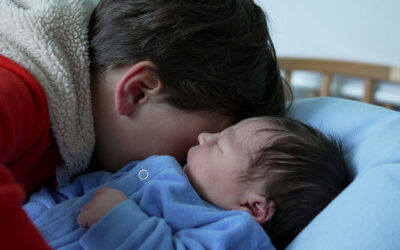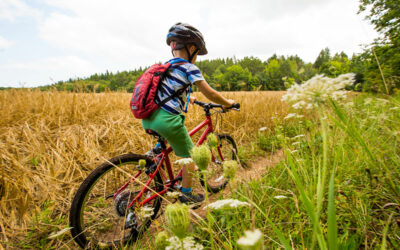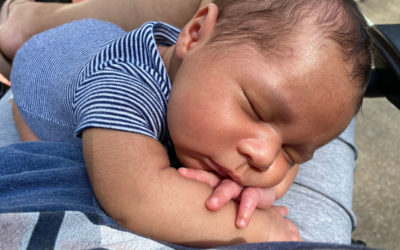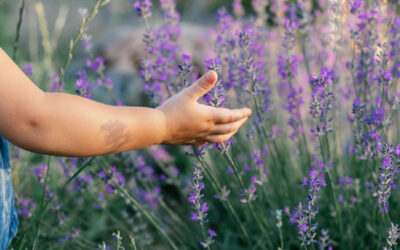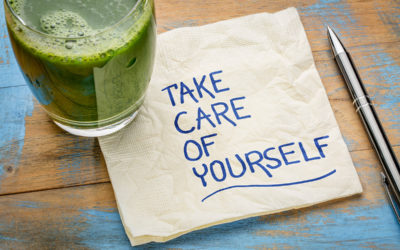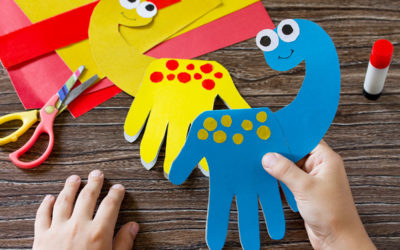Articles
Healing from Trauma/Neglect/Abuse
Easing A Child’s Fears When You Meet for the First Time
Typically, when you welcome a child to your home to support their family through a challenging season, you already have a relationship with the child. You may not know them well, but you are not wholly unfamiliar with each other. However, occasionally, raising another...
Maintaining Sibling Connections
Siblings get separated for many reasons when they must leave their parents to live with a family member. While most professionals recommend that siblings stay together if they cannot live at home, separation still happens. How can you support your grandchildren’s...
Helping Your Tween or Teen Develop Their Whole Person
Does your tween or teen grandchild (nephew or cousin) act sullen, angry, illogical, and overly emotional? Do they engage in risky behaviors you never dealt with when raising your kids? You may struggle to understand this young person or feel connected to them because...
Impacts of Prenatal Exposure to Alcohol and Drugs
Talking to Your Grandchild About a Parent’s Drug or Substance Abuse
Your grandchild (or other loved one’s child) came to you with the weight of scary or challenging experiences. Your priority is to help this child feel safe, loved, and supported. This site, your extended family, and professionals in your community are surrounding you...
Helping Your Grandchild Avoid Substance Abuse
The time your grandchild spends in your care, in the nurturing, stable environment of your home, can be a powerful force that protects them from risky behaviors like underage drinking or drug use. You know that you cannot erase the experiences this child had before...
Caring For Prenatally Exposed Babies
Did you know that 10-11% of babies born in the US have been exposed to alcohol, drugs, or both before birth? The percentage is even higher for kids who are being raised by their grandparents or other relatives. And remember that drug exposure can include both legal...
Challenging Behaviors
Staying Calm to Help a Child Regain Their Calm
When your grandchild or nephew spirals out of control or has a temper tantrum, it's easy to lose your cool and join the chaos, isn't it? After all, as Dr. Bruce Perry frequently says, "dysregulation is contagious!" So how can you stay calm, share your sense of calm,...
Is My Grandchild Too Affectionate with Strangers?
Many young children feel free and safe to approach strangers with smiles and waves. They have not yet processed the "stranger danger" conversations that parents and caregivers will dole out over the coming years. They are curious, innocent, and trusting. But what do...
Connecting with Your Grandchild When You Must Correct Behavior
When parenting a grandchild, niece, or nephew who has experienced trauma, the balance of structure and nurture can be difficult to manage. The goal is to maintain the vital connections of trust, safety, and confidence the child feels in your home while helping them...
ADHD
No Results Found
The page you requested could not be found. Try refining your search, or use the navigation above to locate the post.
Disrupting Birth Order
No Results Found
The page you requested could not be found. Try refining your search, or use the navigation above to locate the post.
Helping A Child Heal from Sexual Abuse
No Results Found
The page you requested could not be found. Try refining your search, or use the navigation above to locate the post.
School Issues for Foster & Kinship Kids
No Results Found
The page you requested could not be found. Try refining your search, or use the navigation above to locate the post.
Technology/Internet and Our Kids
No Results Found
The page you requested could not be found. Try refining your search, or use the navigation above to locate the post.
Self-Care for Kinship and Foster Parents
Stop and Assess: How are YOU Doing?
Caring for a relative's child, whether for a long weekend or an extended season, can be rewarding and fulfilling. However, suppose you aren't used to supporting a child impacted by loss, neglect, or prenatal substance exposure. In that case, it can also be bewildering...
Practical Tips to Starting Regular Self-Care
When you are raising a child from your extended family or tribal community, you are giving of yourself in new and challenging ways. Your grandchild (or cousin or nephew) needs you to help them overcome their struggles. It's easy to feel overwhelmed by their needs and...
Making Self-Care a Routine
Raising a grandchild (or nephew or cousin) brings both joy and stress. You love them and you love knowing that they are safe, but raising a child is a lot of work! Think back to when you were raising your kids and remember how tired you were. Now add a few or a lot of...
Relationship with Child’s Parent
No Results Found
The page you requested could not be found. Try refining your search, or use the navigation above to locate the post.
Working Together For the Good of the Child In Your Care
Preparing Teens with Cognitive Delays for Adulthood
Have you heard from a doctor or a teacher that your grandchild (or niece or cousin) has “cognitive delays”? Or maybe you’ve heard that the child has developmental delays or an intellectual disability. Whatever it is called, you know that this child develops and learns...
10 Tips for Shared Parenting in Difficult Situations
In an ideal world, helping raise your grandchild (or cousin or family friend) goes smoothly. You provide a safe, happy landing place for the child while the parents work hard to get back on their feet. All the involved adults share the same goal of returning the child...
Raising Adolescents (tweens/teens)
No Results Found
The page you requested could not be found. Try refining your search, or use the navigation above to locate the post.
Supporting Healthy Relationships/Attachment
No Results Found
The page you requested could not be found. Try refining your search, or use the navigation above to locate the post.
Phone
This website was supported with funding from the U.S. Department of Health and Human Services, Administration for Children and Families’ Children’s Bureau through the Improving Child Welfare Through Investing in Family grant #HHS-2021-ACF-ACYF-CW-1921. The purpose of this grant is to provide an array of kinship preparation services and ongoing kinship supports, and provide shared parenting to build trusting relationships between all out-of-home caregivers and parents of children/youth in foster care to ensure parents and families remain actively involved in normal child-rearing activities.
This website is supported by Grant Number 90CW1149 (HHS-2021-ACF-ACYF-CW-1921) from the Children’s Bureau within the Administration for Children and Families, a division of the U.S. Department of Health and Human Services. Neither the Administration for Children and Families nor any of its components operate, control, are responsible for, or necessarily endorse this website (including, without limitation, its content, technical infrastructure, and policies, and any services or tools provided). The opinions, findings, conclusions, and recommendations expressed are those of the author(s) and do not necessarily reflect the views of the Administration for Children and Families and the Children’s Bureau.


